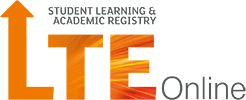In this digital era, learners prefer to have access to learning resources anywhere and at any time. Classroom learning alone is no longer enough for current students, as it does not meet their learning needs completely, this is where blended learning comes in. Blended learning is an optimal mix of in-classroom learning and online learning, which offers learners the best parts of both elements. This provides the personal touch of in classroom teaching with the flexibility of online learning that caters to differing learning styles and the preferences of the learner.
eLearning vs Instructor-Led/Classroom Learning
The following table shows the benefits of both types of learning.
| eLearning | Instructor Led Learning |
| Self-directed, enabling learners to proceed at their own pace | Availability of the academic to adapt to participants’ needs and questions |
| Convenient and flexible | Live group interactions, collaborations, role modelling, and mentoring possible |
| Consistency in the format and delivery of content | Face-to-face sharing of experiences and social interaction |
| Easy to update and disseminate | Dedicated time in a controlled environment, away from other work demands |
| Reduced time away from work and cost of logistics | Ability to address topics and issues that are outside of the packaged course material |
| Ideal for a multicultural and multilingual context | Easy to modify and adapt instructional strategies |
Considering blended learning as part of your teaching approach can help a wider range of students to reap the benefits. Blended learning can be used for teaching content, but also for assessments too. For more information on how you can use technology to support assessment and integrate it within an online environment, try reading this blog post: https://blogs.tees.ac.uk/lteonline/2016/07/07/integrating-assessment-through-blended-learning/
For further support with blended learning, please contact elearning@tees.ac.uk
